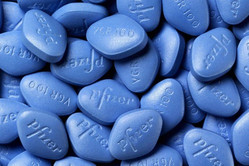Counterfeit Viagra seizures triple, says MHRA
Phil Taylor, 16-May-2016
 There has been a sharp increase in seizures of counterfeit Viagra in the UK, according to the national medicines regulator.
There has been a sharp increase in seizures of counterfeit Viagra in the UK, according to the national medicines regulator.
The Medicines and Healthcare products Regulatory Agency (MHRA) said last week it had seized £11m-worth ($15.8m) of fake Viagra (sildenafil) - an erectile dysfunction treatment sold by Pfizer - in the last 12 months. That represented a three-fold increase in seizures the prior year, said the agency.
The increase suggests that the UK is being flooded with knock-off copies of the drug which are often made in unhygienic conditions and do not meet quality and safety standards. They may be hazardous to health and potentially fatal, according to the MHRA.
The fakes are either direct copies of the brand or are illegal, unlicensed products that often trade on the brand's recognition value.
The MHRA made the comments after it conducted its biggest-ever operation to disrupt the trade in fake Viagra, with searches conducted at 24 properties across London by 50 officers.
According to the agency around £4m-worth of fake Viagra was seized in 2014-2015, less than half the total counterfeit medicine seizures of £8.7m by value, according to a BBC report. In 2015-2016 fake Viagra accounted for 90 per cent of the total.
Most of the counterfeits are purchased online, and there is a fertile market among young men without ED who view the drug as a sexual performance enhancer.
Stuart Fuller, director of commercial operations at online brand protection specialist NetNames, says fraudsters are "employing increasingly sophisticated tactics to take advantage of the continued rise in e-commerce and trick shoppers into unknowingly buying counterfeit products."
As the Internet is a vast, relatively unregulated space, counterfeiters are able to set up convincing fake websites, social media profiles and listings on marketplace sites, he adds.
"Many consumers are unknowingly purchasing discounted medication and treatment, without realising they may end up obtaining a substandard or even dangerous product."
NetNames offers the following advice to consumers tempted to buy medicines online:
- Shop around – if one particular website is selling branded pharmaceuticals at a much lower price than the rest, think twice. If the deal looks too good to be true, it probably is!
- If the branding and logo looks unusual, or if there are spelling mistakes on the packaging, this is often a sign that the product may be counterfeit.
- How long ago was the domain name registered? Put the details into www.who.is and look at the date it was registered. Whilst it's not a fail-safe test, domains registered for a year or more tend to suggest a website that's reputable.
- Does the website use security certificate? Websites that invest in protecting the personal and financial details of their customers will always use SSL encryption. This is shown by a padlock in the website address bar or, when using certain browsers such as Chrome or Firefox, the URL bar will be green.
- What do other people say about the website? Social media ‘likes’ and followers are easy to purchase, giving the impression of authenticity. Take some time to search for peer reviews of the website and makeup products, as these are harder (although not impossible) to fake.
Related articles:



©
SecuringIndustry.com
 | back to top
| back to top




 There has been a sharp increase in seizures of counterfeit Viagra in the UK, according to the national medicines regulator.
There has been a sharp increase in seizures of counterfeit Viagra in the UK, according to the national medicines regulator.
